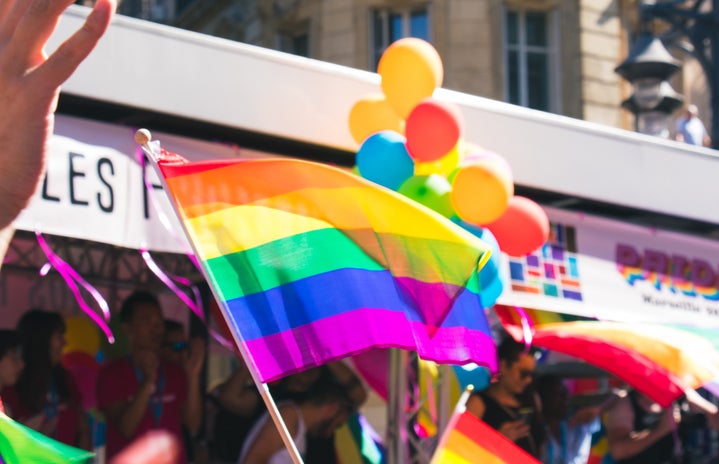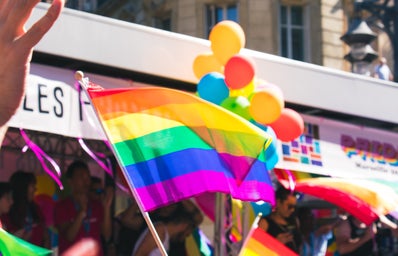October is LGBTQ+ History Month, and I wanted to share some LGBTQ+ historical figures that I look up to that you may not know about! These icons are in no particular order, but I did try to go for lesser known figures in an attempt to educate myself further on my history while writing this article.
- James Baldwin
-
James Baldwin was born and raised in Harlem. In his teenage years, he realized he was gay, and moved to France in 1948 after feeling “smothered by being an African American in a racist society, and a gay man in homophobic America” (Planet Romeo). He went on to become an author, poet and playwright; his works featured the struggles of racism and homophobia. His popular novels include Go Tell It on the Mountain, Giovanni’s Room and his book of essays, Notes of a Native Son. Many critics dismissed his works because they openly discussed homosexuality, but he became well known for his works later in life and after his death.
James Baldwin died in 1987 of stomach cancer, about a month after being quoted saying, “no one has a right to try and tell another human being whom he or she can or should love” (Planet Romeo).
- Sylvia Rivera
-
Sylvia was born in the Bronx to Latinx parents and was raised by her grandmother. She rebelled against society’s messages against femininity and began to wear makeup as early as the fourth grade, and by the time she was 10-years-old, she had left home and began the life of a sex worker. It was here that she found her family of “street queens,” as many poor trans youth identified themselves. She was only 17 when she threw the second Molotov cocktail, as she emphatically reminded folks, at the Stonewall Riots in 1969 in Greenwich Village (Them).
She grew to be a prominent activist, pushing the dominantly white gay and lesbian communities to approach activism in a more intersectional way, including people of color, incarcerated people and transgender folks. Throughout her life, she was involved with the Gay Liberation Front, the Gay Activists’ Alliance and founded STAR (Street Transvestite Action Revolutionary) with Marsha P. Johnson, another well known trans woman of color from the Stonewall age.
Sylvia Rivera passed away in 2002, but her legacy lives on in numerous ways, including the Sylvia Rivera Law Project, which provides social services and political education to trans, intersex, and gender nonconforming folks.
- Audre Lorde
-
Audre Lorde once described herself as “black, lesbian, mother, warrior, poet” and honestly, it tracks (Poetry Foundation).
Lorde was born in New York City to Grenadan parents in 1935, where she attended private schools and was first published in Seventeen while in public high school. She later attended Hunter College for her bachelor’s degree in 1959 and Columbia University for her master’s in library science in 1961. After graduation, she worked at a library, taught at Hunter College and wrote a plethora of poetry, much of it relating to lesbianism and blackness. Her most praised work is considered to be The Black Unicorn: Poems, which was set in Africa and examined her role as a mother and daughter. In 1980, she founded a new publishing house with Barbara Smith called Kitchen Table: Women of Color Press.
Audre Lorde died in 1972 in the U.S. Virgin Islands, but even death could not stop her career—her last work, The Marvelous Arithmetics of Distance: Poems 1987-1992, was published posthumously in 1973.
- Divine
-
Divine is the stage name of actor and drag queen Harris Glenn Milstead. At age 16, he met his longtime friend John Walters, who would cast Milstead as his drag persona, Divine, in dozens of independent films, including Pink Flamingos (1972). The cult classic launched Divine’s underground career, and landed her the role of Edna Turnblad in the 1988 classic Hairspray. One little known fun fact is that Divine served as part of the inspiration for the character Ursula in The Little Mermaid.
Harris Glenn Milstead, died in 1988 from a heart attack. That year, People named Divine the “Drag Queen of the Century” (Wikipedia).
- Barbara Gittings
-
Barbara Gittings was born in 1932 in Vienna, Austria to her mother and a United States diplomat father. Gittings discovered her sexuality while attending Northwestern University and became deeply immersed in researching everything about homosexuality. This immersion unfortunately led to her flunking out, but that didn’t stop her. She began her career of activism in 1958 when she founded the New York chapter of the Daughters of Bilitis and was the editor of the DOB publication The Ladder, the first national lesbian magazine.
Gittings did much of her activism and organizing with friend and advocacy partner Frank Kameny. Among many successes with gathering activists for the first public demonstrations for gay and lesbian equality, they also lobbied hard for the declassification of “homosexuality” as a mental disorder. In 1973, the American Psychological Association (APA), after much lobbying, protesting and demonstration against them, publicly declared that homosexuality was not an illness. It was thus removed from the Diagnostic and Statistical Manual of Mental Disorders (DSM) for the sixth printing of the DSM-II in 1974 (Spiegel 2002).
Barbara Gittings died in 2007 at the age of 74 in Pennsylvania. At her memorial service, the executive director of the National Gay and Lesbian Taskforce said, “what do we owe Barbara? Everything” (Jennings 2007).
These LGBTQ+ activists, authors, poets, performers and scholars truly embody the essence of the queer community. Learning more about each of them for this article was honestly a touching experience, as we in the LGBTQ+ community don’t get to hear our history taught in high school social studies classes. Learning more about queer history helps me feel more connected to my identity and my community, and I hope I’ve been able to share that feeling with you all today, whether you’re in the community or are an ally looking to learn more.



